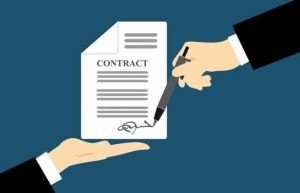Online travel reviews have become an indispensable aspect of the modern-day travel industry. Travelers rely heavily on these reviews to make informed decisions about their travel plans. However, while many reviews are honest and objective, some may contain false or misleading information that can harm the reputation of businesses and individuals.
This is where the legal concept of defamation comes into play. Defamation is a legal term for a false statement that harms the reputation of an individual or business. In the context of online travel reviews, defamation can occur when reviewers make false or damaging statements about hotels, restaurants, and other travel-related businesses.
The impact of defamatory statements can be significant and long-lasting. Negative reviews can deter potential customers from patronizing a business, leading to lost revenue and damage to reputation. In some cases, the damage can be so severe that businesses may be forced to close down.
It is, therefore, essential for businesses and individuals to understand their legal rights and remedies when faced with defamatory statements in online travel reviews. This article will explore the legal recourse available for false and damaging statements in online travel reviews, including types of defamatory statements, legal remedies for defamation, and defenses against defamation claims.
Key Takeaways
- Defamation in online travel reviews can harm the reputation of individuals and businesses and lead to lost revenue or even closure.
- Legal remedies, such as cease and desist letters and lawsuits, can be pursued to address defamatory statements, but businesses must gather evidence to support their claim.
- Defenses against defamation claims include truth, opinion, and public interest, but businesses must respond with factual information and monitor and manage online reviews for effective reputation management.
- The accuracy of information presented in online travel reviews is important for both reviewers and businesses.
What is Defamation and How Does it Apply to Online Travel Reviews?
Defamation, as a legal concept, pertains to the harm caused by false and damaging statements made by individuals or entities about another person, group, or business. It is the act of communicating a false statement to a third party that harms the reputation of the subject. Defamation can take two forms: libel and slander. Libel is the written or published form of defamation, while slander is the spoken form.
In the context of online travel reviews, defamation can occur when a reviewer makes false and damaging statements about a hotel, restaurant, or other travel-related business, either in a written review or in a video or audio review. Defamation in online travel reviews can have a significant impact on the business being reviewed.
Negative reviews can discourage potential customers from using the services of a business, leading to lost revenue and damage to the business’s reputation. Moreover, online reviews have a wide reach, and defamatory content can spread quickly through social media and other online platforms. As a result, businesses that have been the subject of defamatory online reviews may seek legal recourse to protect their interests and reputation.
Types of Defamatory Statements
There are various types of statements that can harm someone’s reputation and integrity, including those that contain insinuations, innuendos, or allegations of wrongdoing without evidence or proof. These types of statements are known as defamatory statements and can be classified into two categories: libel and slander.
Libel refers to written or published statements that are false and damaging to a person’s reputation, while slander refers to spoken statements that are false and damaging to a person’s reputation.
Examples of defamatory statements in online travel reviews may include accusations of theft, fraud, or sexual harassment against hotel staff or tour operators. These types of statements can be damaging to the reputation of the accused and may lead to financial loss or legal action.
It is important for individuals to be cautious of the statements they make in online travel reviews and to ensure that they are based on facts and evidence. In cases where false and damaging statements have been made, legal recourse may be available for the accused to seek compensation for the harm caused to their reputation and business.
The Impact of Defamatory Statements on Businesses and Individuals
The consequences of false accusations can have lasting impacts on the reputation and livelihood of both individuals and businesses.
For businesses, defamatory statements in online travel reviews can lead to a loss of customers and revenue. This is especially true for small businesses that heavily rely on positive online reviews to attract customers. If false and damaging statements are left unaddressed, they can create a negative image of the business in the minds of potential customers, leading to a decline in bookings and ultimately, revenue.
On the individual level, defamatory statements can negatively impact one’s personal and professional life. In some cases, individuals have lost their jobs or have been denied new job opportunities because of false accusations made online. This can be especially devastating for individuals who work in industries that require a high level of trust and credibility, such as travel and hospitality.
Additionally, false accusations can lead to emotional distress and mental anguish, which can have long-lasting effects on a person’s well-being. Overall, the impact of defamatory statements can be significant and far-reaching, making it important for individuals and businesses to take action to protect their reputation and livelihood.
Legal Remedies for Defamation
Legal remedies for defamation include:
- Cease and desist letters
- Lawsuits for damages
- Injunctions
- Court orders
Cease and desist letters are typically the first step in addressing defamatory statements, as they provide an opportunity for the offending party to retract their statements and settle the matter outside of court.
If the issue cannot be resolved through a cease and desist letter, a lawsuit may be necessary to seek damages and/or an injunction to prevent further harm.
Cease and Desist Letters
Cease and desist letters have become a common method for businesses to address defamatory online reviews, as they can serve as a warning to the reviewer and potentially prevent further harm to the business’s reputation.
A cease and desist letter is a legal document that demands an individual to stop certain activities, such as making false and damaging statements about a business. The letter typically outlines the defamatory statements made by the reviewer and provides evidence to support the claim that the statements are false. It may also threaten legal action if the reviewer continues to make harmful statements.
While cease and desist letters can be effective in stopping defamatory behavior, they are not always successful. Some reviewers may ignore the letter and continue to post negative comments about the business. In these cases, the business may need to take further legal action to protect its reputation.
It is important to note that businesses must be careful in their use of cease and desist letters as they can be seen as an attempt to silence negative reviews and may lead to negative publicity. Therefore, it is crucial for businesses to consult with legal counsel before sending a cease and desist letter to ensure that it is justified and appropriate.
Lawsuits for Damages
Businesses may pursue legal action against individuals who have made disparaging remarks about their reputation in order to receive compensation for damages. The following list outlines the steps that businesses can take when seeking legal recourse for defamation in online travel reviews:
-
Hire a lawyer: It is important for businesses to consult with a lawyer who specializes in defamation cases. A lawyer can provide guidance on the legal process and help businesses build a strong case.
-
Gather evidence: Businesses must gather evidence to support their claim of defamation. This may include screenshots of the offending review, witness statements, and any other relevant documentation.
-
File a lawsuit: If the evidence supports the claim of defamation, businesses can file a lawsuit against the individual who made the damaging statements. The lawsuit may seek compensation for damages to the business’s reputation and any financial losses incurred as a result of the defamation.
-
Pursue settlement or trial: Once a lawsuit has been filed, the parties may pursue settlement negotiations or proceed to trial. A settlement may involve the individual retracting the damaging statements and paying a settlement amount to the business. If the case goes to trial, a judge or jury will determine the outcome.
Injunctions and Court Orders
Restraining orders and injunctions may be issued by a court to prevent the individual from making further statements that harm the reputation of a company.
Injunctions are court orders that prohibit a person from doing something or require them to do something.
In defamation cases, an injunction can be used to stop the dissemination of false and damaging statements. It can also be used to require the defendant to retract their statements or issue a correction.
Injunctions are often sought in cases where the statements made are particularly damaging or where monetary damages are not sufficient to remedy the harm caused.
Injunctions can be temporary or permanent and can be issued at any stage of the legal process.
In order to obtain an injunction, the plaintiff must demonstrate that they are likely to succeed on the merits of their case and that they will suffer irreparable harm if the injunction is not granted.
Proving Defamation in Court
Establishing the truthfulness of a statement and the intent behind it are key factors in proving defamation in court, as it requires evidence of actual malice or reckless disregard for the truth.
In order to prove defamation, the plaintiff must show that the defendant made a false and defamatory statement about them that was published to a third party, causing them harm or injury.
The plaintiff must also prove that the defendant acted with fault, either through actual malice or negligence, in making the statement.
To establish the truthfulness of a statement, the plaintiff must present evidence that the statement is false. This can be done through testimony or documentary evidence, such as emails, letters, or social media posts.
The plaintiff must also show that the defendant acted with actual malice or reckless disregard for the truth, meaning that they knew the statement was false or had serious doubts about its truthfulness but published it anyway.
Alternatively, the plaintiff can prove negligence by showing that the defendant failed to exercise reasonable care in making the statement, such as failing to fact-check or failing to verify the accuracy of the statement.
Overall, proving defamation in court can be a complex and challenging process, requiring careful attention to the evidence and legal requirements.
Defenses Against Defamation Claims
Defenses against defamation claims are available to defendants who have been accused of making false and damaging statements. The three main defenses are truth, opinion, and public interest.
Truth is a complete defense to defamation, as statements that are proven to be true cannot be legally considered defamatory.
Opinion is also a defense, as individuals are entitled to express their personal opinions, as long as they are not presented as facts.
Lastly, public interest is a defense, as statements made in the interest of the public good may be protected, even if they are damaging to an individual or organization.
Truth as a Defense
Truth is considered a viable defense in legal cases involving defamation in online travel reviews. If a statement is true, then it cannot be considered defamatory. In order for the truth defense to be successful, the defendant must prove that the statement made was factually accurate. This can be done by presenting evidence that supports the claim made in the review.
However, even if the statement is technically true, it may still be considered defamatory if it is presented in a way that is misleading or taken out of context. Additionally, if the statement includes opinions or subjective statements, it may not be considered defamatory even if it is not entirely accurate.
Ultimately, whether or not the truth defense can be used in a defamation case involving online travel reviews will depend on the specific circumstances of the case and the evidence presented.
Opinion as a Defense
When it comes to evaluating the veracity of statements made in online travel reviews, the defense of opinion can play a critical role. In many jurisdictions, opinions are protected under defamation law, meaning that the law recognizes that individuals are entitled to their own opinions, and that it is not fair to hold them liable for expressing those opinions in good faith.
This means that if a reviewer expresses their opinion about a hotel or restaurant, and that opinion is not based on false or misleading information, then they may not be held liable for defamation.
However, it is important to note that not all statements made in online travel reviews will be considered opinions. If a statement implies a false assertion of fact, or if it is presented as a statement of fact, then it may not be protected under the defense of opinion.
Furthermore, even if a statement is presented as an opinion, if it is based on false or misleading information, then it may still be considered defamatory. As such, it is important for both reviewers and businesses to consider the accuracy of the information presented in online travel reviews, and to ensure that any statements made are truthful and accurate.
Public Interest as a Defense
One potential defense that can be used in cases involving negative statements made about businesses or individuals is the concept of public interest.
This defense is based on the idea that certain information, even if it is negative, is in the public’s interest to know.
A person making a statement that is damaging to a business or individual may argue that the statement was made in the public’s interest and therefore, should not be considered defamation.
However, it is important to note that the public interest defense is not absolute and is subject to interpretation by the court.
In order for the defense to be successful, the statement must be of public interest, and the person making the statement must have a reasonable belief that it is true.
Additionally, the statement must be made in good faith and without malice. If the statement is found to be false or made with malicious intent, the public interest defense will not apply.
Protecting Yourself from Defamatory Statements
This subtopic delves into the measures that individuals and businesses can take to safeguard themselves against defamatory statements made on online travel review platforms.
It covers three primary strategies:
- Responding to false statements
- Monitoring and managing online reviews
- Developing a crisis communication plan
The objective of these strategies is to mitigate the potential harm caused by defamatory statements, preserve reputation, and protect against legal action.
Responding to False Statements
Addressing false statements in online travel reviews can be accomplished through a variety of techniques, including responding with factual information and seeking legal recourse if necessary. When responding to false statements, it is important to remain calm and professional in tone.
Provide factual information that directly addresses the false statement made in the review, and avoid engaging in personal attacks or making emotional arguments. It is also important to keep the response brief and to the point, as readers may not want to read a lengthy rebuttal.
If the false statement is particularly damaging and cannot be resolved through direct communication with the reviewer, seeking legal recourse may be necessary. This can involve hiring a lawyer to send a cease and desist letter or filing a lawsuit for defamation.
However, it is important to carefully consider the potential consequences of legal action, as it can be expensive and time-consuming. It may also draw further attention to the false statement and potentially damage the reputation of the business or individual further.
Ultimately, the best approach to addressing false statements in online travel reviews will depend on the specific circumstances of the situation and the desired outcome.
Monitoring and Managing Online Reviews
Monitoring and managing online reviews is a critical aspect of reputation management for businesses in the travel industry. With the widespread use of social media platforms and online review sites, businesses must be vigilant in monitoring what is being said about them online. This is particularly important in the travel industry, where word-of-mouth recommendations and reviews can significantly impact a business’s success.
One effective way to manage online reviews is to proactively encourage customers to leave feedback, both positive and negative. By doing so, businesses can address any issues or concerns that arise and demonstrate a commitment to customer satisfaction.
Additionally, regularly monitoring online reviews allows businesses to quickly respond to any negative feedback and address any concerns or issues raised by customers. This can help to prevent any further negative reviews and demonstrate a commitment to resolving problems and improving the overall customer experience.
Developing a Crisis Communication Plan
Moving on from the discussion of monitoring and managing online reviews, it is important to consider the development of a crisis communication plan in the event of defamatory statements being made. A crisis communication plan is a documented strategy outlining procedures and protocols to effectively respond to a crisis. In the context of online travel reviews, this plan should address how to handle false and damaging statements that could potentially harm the reputation of a business.
The first step in developing a crisis communication plan is to establish a team responsible for managing the crisis. This team should include representatives from various departments, such as public relations, legal, and marketing.
Once the team is established, the following steps should be taken to effectively manage the crisis:
- Conduct an assessment of the situation and gather all relevant information.
- Develop a clear and concise message that addresses the issue and communicates the business’s position.
- Communicate the message through all relevant channels, including social media, review sites, and the business’s website.
By having a crisis communication plan in place, businesses can prepare themselves for potential defamatory statements and effectively manage the situation in a timely and professional manner.
Frequently Asked Questions
What is the difference between defamation and a negative opinion in an online travel review?
Defamation and negative opinions in online travel reviews are different in their nature and legal implications. Defamation refers to a false statement that harms a person’s reputation, while negative opinions are subjective expressions of dissatisfaction or disappointment.
The key element in defamation is that the statement is untrue and causes harm to the subject’s reputation, while negative opinions are based on personal experience or perception and do not necessarily reflect reality.
In the context of online travel reviews, negative opinions may include criticism about the quality of service or facilities, whereas defamation could involve accusations of criminal activity or dishonesty. Therefore, it is important to distinguish between negative opinions and defamatory statements when assessing the legal recourse for false and damaging statements in online travel reviews.
Can a business sue an individual for defamation if the review was posted anonymously?
If a business wishes to sue an individual for defamation of their business in an online travel review, the anonymity of the reviewer does not necessarily prevent legal action. The business may be able to obtain a court order for the website hosting the review to disclose the reviewer’s identity.
However, the business would still need to prove that the review was indeed defamatory and false, and that it caused harm to their reputation and business. This can be a challenging task, as opinions and statements of fact are often subjective and open to interpretation.
Additionally, many countries have laws that protect individuals’ rights to express their opinions and criticisms, particularly in the context of consumer reviews. Thus, while it is possible for a business to pursue legal action against an anonymous reviewer for defamation, it is not always a straightforward or guaranteed process.
Are there any consequences for leaving false and damaging reviews online?
The consequences of leaving false and damaging reviews online can vary depending on the circumstances. In some cases, the affected business may choose to pursue legal action for defamation. This can result in the reviewer being required to retract their statement, pay damages, or face other penalties.
Additionally, leaving false reviews can damage a business’s reputation and harm their ability to attract customers. It is important to note that while freedom of speech is protected under the law, individuals are not immune to the consequences of making false and damaging statements.
As such, it is important to carefully consider the content of online reviews and ensure that they are truthful and accurate.
How can businesses monitor and respond to defamatory reviews without violating the reviewer’s privacy?
Businesses can monitor and respond to defamatory reviews without violating the reviewer’s privacy by using online reputation management tools which allow them to track and analyze reviews across different platforms. These tools can help businesses identify defamatory reviews and respond to them in a professional and respectful manner.
Additionally, businesses can encourage satisfied customers to leave positive reviews, which can help drown out any negative reviews. It is important for businesses to handle negative reviews carefully, avoiding any personal attacks or inflammatory language, and focusing on addressing the specific concerns raised by the reviewer.
By being proactive in monitoring and responding to reviews, businesses can protect their reputation and maintain the trust of their customers.
Can a business be held liable for defamatory statements made by their employees in response to online reviews?
In general, a business can be held liable for defamatory statements made by their employees in response to online reviews.
The legal principle of respondeat superior, also known as vicarious liability, holds employers responsible for the actions of their employees that occur within the scope of their employment.
If an employee engages in defamatory conduct while carrying out their job duties, the employer may be held responsible for any resulting harm.
However, the specific circumstances of each case can affect liability, such as whether the employee was acting within the scope of their employment or whether the business took appropriate measures to prevent or address defamatory conduct.
It is important for businesses to have clear policies and procedures in place for online reviews and to train their employees on appropriate conduct to minimize the risk of liability.
Conclusion
Defamation in online travel reviews is a growing concern for businesses and individuals alike. Defamatory statements can have a significant impact on a person’s reputation and financial well-being.
It is important to understand what constitutes defamation and the legal remedies available to those who have been defamed. Defamation occurs when a false statement is made that harms a person’s reputation.
In the context of online travel reviews, defamatory statements may include false claims about the quality of service or accusations of illegal or unethical behavior. Businesses and individuals who have been defamed may be able to seek legal recourse through defamation lawsuits.
However, proving defamation in court can be challenging and requires a thorough understanding of the legal requirements. To protect oneself from defamatory statements in online travel reviews, it is important to monitor online reviews and respond promptly to any false or misleading statements.
It is also essential to have a clear understanding of the legal options available in the event that defamatory statements are made. Ultimately, the best defense against defamation is to provide exceptional service and maintain a positive reputation, which can help to mitigate the impact of any false or damaging statements.











































